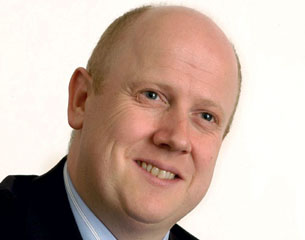
Almost half (45%) of employees would be willing to save more into a pension if they had a better idea of how they worked, according to research by Capita Employee Benefits.
Its third annual Employee insight report, which surveyed 3,001 UK workers, also found that half (50%) of respondents find pensions related terminology complicated and confusing.
In terms of pensions, the research also found:
- 52% do not know how much they should be saving for retirement.
- Only 14% said that saving for retirement was one of their main financial priorities, with around a quarter (26%) of respondents stating that saving for a holiday or going travelling was their priority.
- 53% of respondents said that coaching on both financial and non-financial issues around retirement would be beneficial.
- A third (33%) of respondents are worried that they will not be able to support themselves in retirement, with those aged 25-44 most concerned (40%).
- 47% of those surveyed think everyone should have to join a private pension scheme regardless of how much they earn, with just 15% disagreeing.
- 39% believe there should not be an option to opt-out of workplace pensions, no matter how old somebody is or how much they earn.
- 7% of respondents over 55 years old in a defined contribution (DC) pension scheme have changed their retirement plans as a result of the new freedoms.
- Just 4% of respondents over 55 years old in a defined benefit (DB) pension scheme say they have changed their retirement plans because of the pension freedoms.
Benefits findings:
- In the 2013 study, 74% of respondents said they would be more likely to stay with an employer that offered good benefits, but this has fallen to 66%.
- 52% of respondents believe that a pay rise would make them feel valued, whilst a quarter (25%) value a ‘thank you’ the most. Of those taking part in the survey, 19% believe bonuses are the key to feeling valued, while 19% rate flexible working, 16% say increased pension contributions and 15% a promotion.
Health findings:
- Three-quarters (75%) of respondents say they have felt stressed at work over the last 12 months, with the problem being more acute among females (79%) than males (71%) and younger employees than their older counterparts (82% of 16-24 year olds compared to 68% of those aged 55-64).
- Just 19% say they have taken time off work because of stress.
- 42% of respondents said that if they had a mental health issue they thought their employer would be understanding and would feel as if they could take time off work to get better.
- Only 33% said that if they had a mental health issue they would feel comfortable talking to their employer about it.
Robin Hames (pictured), head of marketing and research at Capita Employee Benefits, said: “The report is a fascinating and wide-ranging examination into the mindset of the modern employee. It provides unique insights into the priorities, concerns and aspirations of the nation’s employees, which can help employers design benefits programmes and working environments that aid retention and recruitment.
“Key themes that emerge from the report are rising confidence among employees in terms of financial outlook and an increasing desire of employees to be treated as individuals in the context of benefits and the workplace.”